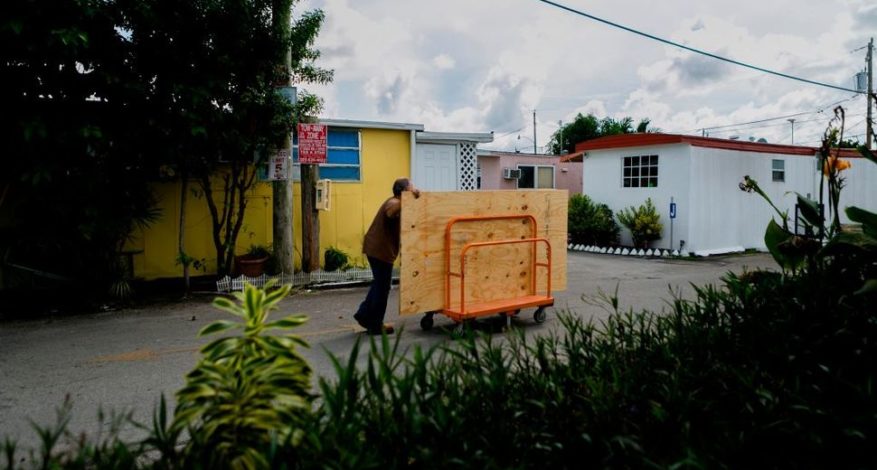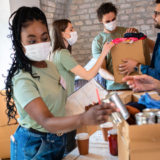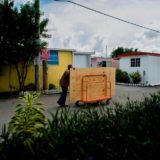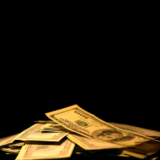A Miami Nonprofit Promotes Disaster Savings Accounts in Hurricane Season
MIAMI — Christopher Vasquez, 19, works in a nursing home during a pandemic and aspires to become a mechanical engineer. The education takes money at a time he’s scrambling to pay his bills because his hours were cut.
But this ambitious young man from Homestead, in south Miami-Dade County, has a strategic advantage: He knows how to save.
Vasquez sharpened this skill a year ago through a matching-grant pilot program sponsored by banking giant JPMorgan Chase & Co. The manager is Catalyst Miami, a nonprofit that promotes climate change resiliency and equitable resources for low-income communities.
Its Disaster Preparedness Matched Savings Program is restarting with a $300,000 grant from JPMorgan Chase’s corporate responsibility team that also covers the costs of a hurricane preparation project, an ongoing effort involving supplies and training for preparation and recovery.
“This is happening right now because people need it,” says Gretchen Beesing, CEO of Catalyst Miami. “We’ve started putting in the orders for hurricane kits. We’ve already had near misses and we’re approaching the height of hurricane season.”
The nonprofit’s disaster savings program aims to help residents prepare for hurricanes and other natural disasters by putting aside something to fall back on. Pioneered by Catalyst Miami staffers, the initial concept was simple: Work with a financial coach, open a bank account or use an existing one to hold at least $100 in deposits, and, after two months, you get a $200 match.
For Vasquez, one of 65 who participated in the pilot last year, it worked then and it’s working now. The Miami Dade College student is on track to get his associate’s degree in May and then pursue a bachelor’s degree in engineering at the University of Florida in Gainesville.
Hurricane Laura in Photos
During hurricane season last year, the savings plan “gave me a sense that I was able to run out and get gas or buy water or food and not worry about my credit card being declined,” Vasquez says. “It gave me a sense of ease, like calmness. Maybe the calm before the storm.”
A coach taught Vasquez to jot down every expenditure – every order of french fries, every cool T-shirt – “and by the end of the week the total I’d spent was incredible,” he says. “We played with numbers to maximize our money.” These days, even with work, school and a lot on his mind, he never skips noting a purchase on his phone.
Beesing says the program’s financial coaches counteract payday lenders who charge outrageously high interest but offer straightforward loan transactions. “We try to move people away from that and demystify banking so people feel more comfortable saving their money there.”
The coaches recommend safe financial products with reasonable minimum balances and fees.
“We match people to the tools that are going to meet their needs,” she says. “If they need a food bank, we’re not gonna talk their heads off about saving money. It’s not the right time.”
Listening with empathy means the program is changing so that clients won’t be required to set aside money they have no way of getting. “Folks are in such dire straits this time around, we felt like it would be tone deaf when so many are unemployed or underemployed,” Beesing says.
Instead of saving their own money to qualify for the $200 match, they’ll earn it by working with a financial coach, she says.
A year ago, just as the pilot ended, Hurricane Dorian veered away from the Florida coastline. After devastating the Abaco Islands in the Bahamas, the Category 5 storm had come perilously close to striking densely populated South Florida. Cue a collective sigh of relief.
Now a once-in-a-100-years pandemic highlights the need to constantly prepare for a less foreseeable disaster. Florida health officials reported 665,730 COVID-19 cases as of Monday; Miami-Dade County alone has suffered 2,894 deaths.
“The pandemic taught all of us that anything can happen. Nobody was prepared for this,” Beesing says. “Nobody’s prepared for Miami to be leveled by a hurricane, either, but we need to think about what could happen and do everything within reach to protect our families.”
For Maribel Corona, 22, another graduate of the disaster savings program, it’s always about family. A coordinator for the nonprofit Mexican American Council, she lives with her parents and two younger siblings in Florida City, just north of the Keys.
Corona serves as household translator for her Mexico-born parents and role model for her younger sister. When she opened a bank account, she had to navigate the confusing process on her own, but her mother stood by to sign permission papers.
Throughout the savings program, Corona was both student and instructor. “Whatever I learn, I come back home and teach my family,” she says. “I’ve been able to educate my parents, like saying, ‘do this and please don’t do that,’ because it messes up your credit score.”
The money she saved came in handy recently when her father’s plant nursery employer laid him off because of the pandemic. He was jobless for three weeks until he started working construction jobs.
“I was able to help him out with that account, so it’s been very beneficial,” Corona says. “It’s not just for disaster preparation, it’s for personal emergencies. I know I’ll be OK for a certain amount of time, so that really does help mentally.”
Corona enthusiastically describes another benefit of taking part in the 2019 pilot, the hurricane kit she received as a parting gift: portable radio; reusable water jug; solar-powered lantern; waterproof, zippered document bag; and first-aid kit.
“I still have it,” she says.




Someone
Lorem ipsum dolor sit amet, consectetuer adipiscing elit, sed diam nonummy nibh euismod tincid unt ut laoreet dolore magna aliquam erat volutpat. Ut wisi enim ad minim veniam, quis nostrud exerci tation ullamcorper suscipit lobortis nisl ut aliquip ex ea commodo consequat. Duis autem vel